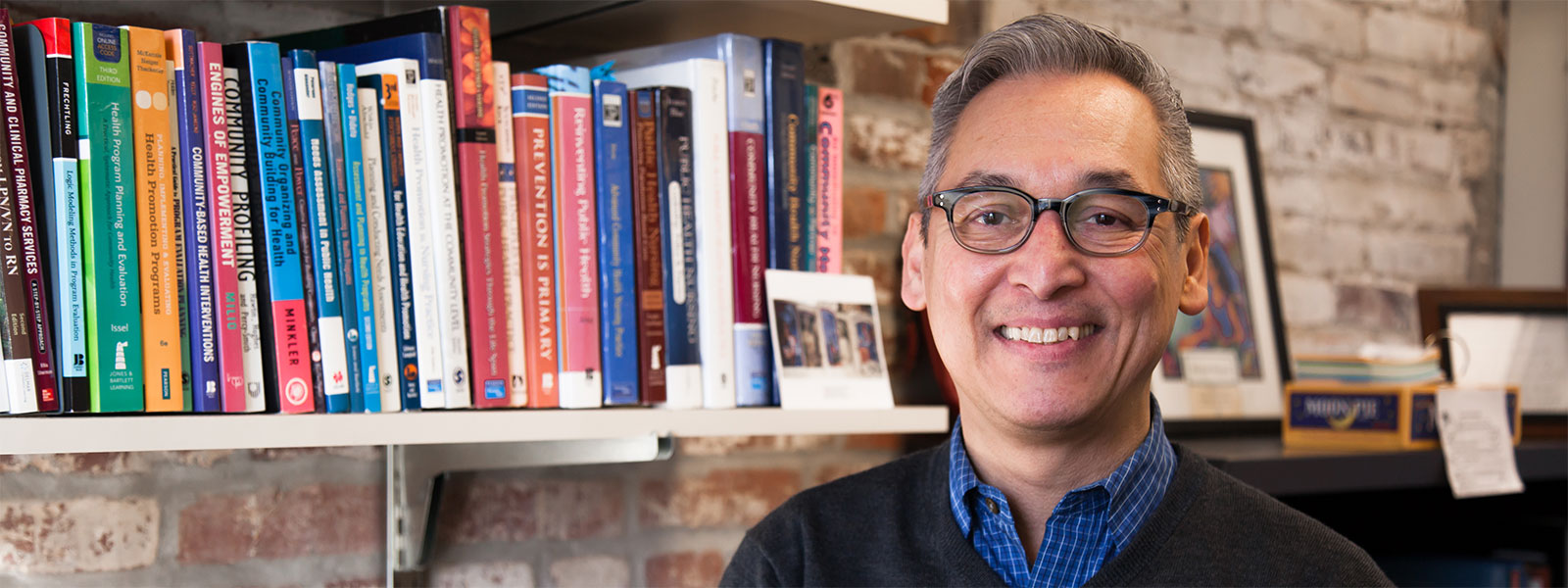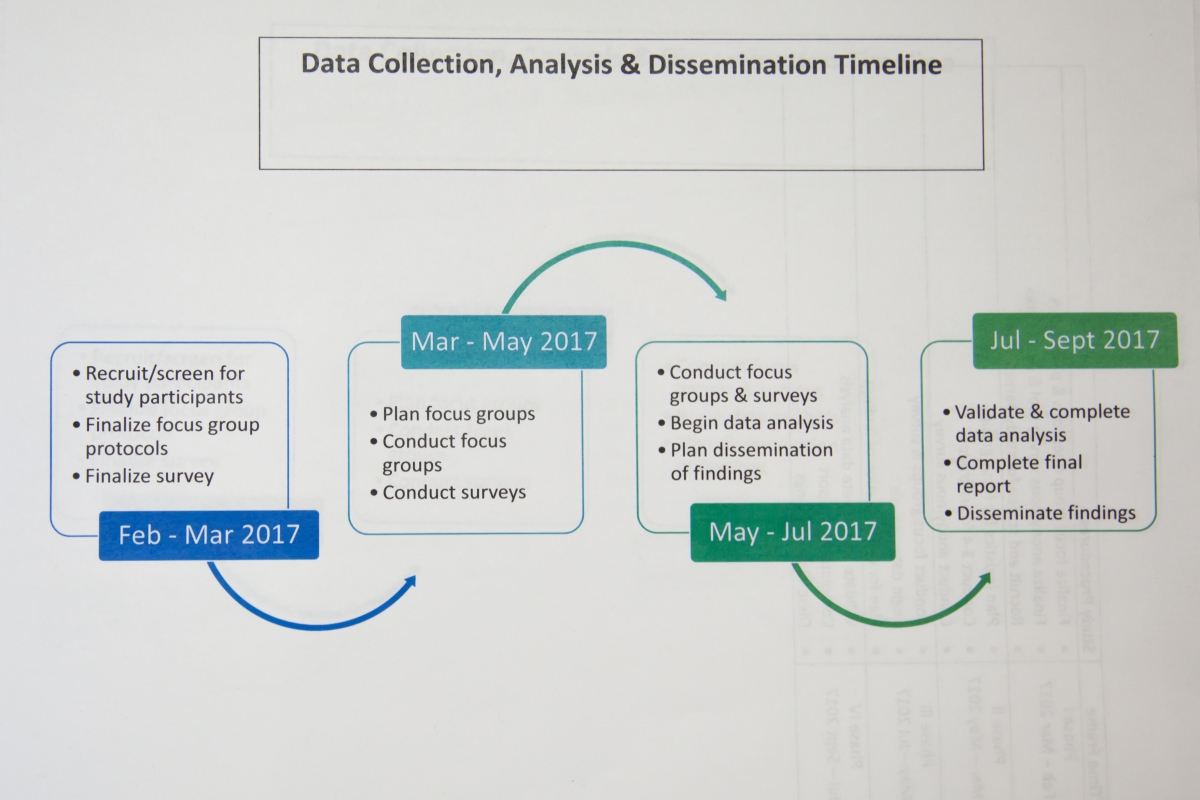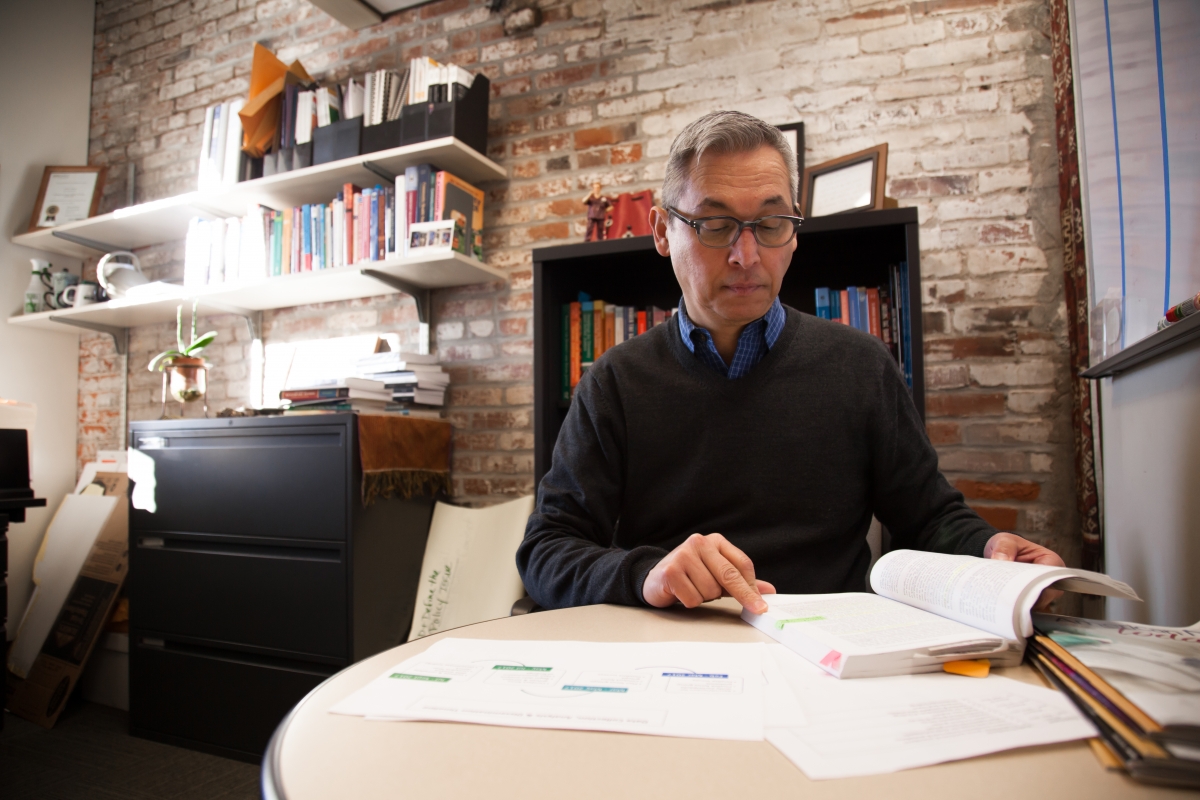
A Community of Researchers
Assistant Professor David Reyes is working with community members to address food access and insecurity in South Tacoma.
Reyes’ work is part of a larger project spearheaded by PWI that is focused on building resilient communities within the watershed of the Puyallup River. The food access effort is just one of a number of thematic areas, called communities of interest, that PWI is using to bring together people, organizations and partnerships for collaborative work meant to address the health of the watershed and its communities. Besides food access, these include active transportation, agriculture, environmental education, forests, and industrial stormwater. The work of PWI is funded by the Russell Family Foundation and the Greater Tacoma Community Foundation.
Reyes, who is on the faculty of UW Tacoma’s Nursing & Healthcare Leadership Program, says that access to good food can impact both quality of life and life expectancy. In South Tacoma, where access to healthy food options is limited, life expectancy is lower than the state average. There are likely a number of reasons why this is true but Reyes believes food plays a role.
Finding a solution first requires understanding the problem and to do that Reyes is using a method called Community Based Participatory Research (CBPR). CBPR emphasizes a local approach to understanding the issues, challenges and solutions that communities face. “We’re working with community members to develop the ideas around how to assess and then also how to begin to address issues around food insecurity, food justice and access,” said Reyes.

What sets CBPR apart from other approaches is its commitment to equity. “Community intervention programs are often delivered to the community as a canned product, a package that can’t be adapted at a deeper level,” said Reyes.
A goal of this project is developing residents as community researchers who will help define the issues around food insecurity and access as they relate to South Tacoma. Participants formed the South Tacoma Design Team and began working with Reyes to develop a series of questions that will be used in focus groups and surveys. “These are very specific questions about how people in South Tacoma think about food and what’s important to them such as buying food, the quality of food and how they might prepare food,” said Reyes.
Reyes worked in public health before coming to UW Tacoma. He has a solid research background but sees himself and the South Tacoma Design Team as equal partners in this project. “We’ve been working to train community members on the basics of research, on confidentiality and why we have a human subjects’ review process,” said Reyes. “However, just because I have technical knowledge that doesn’t mean my opinion is more important than theirs.”
This philosophy applies at every level of the project. Participants are given a stipend because, as Reyes says, “a community member’s time is as valuable as mine.” They’ll also be involved in deciding what to do with the data that is collected. “We’ll take that information back to the community as a way to both validate and report back that we heard them correctly,” said Reyes.

The idea is then to work with the community around recommendations for change and to get those decisions into the hands of policymakers. Reyes sees this as the other real benefit to CBPR. Besides getting valuable input from stakeholders, CBPR also creates a core of dedicated and highly-trained organizers. “We want to build that community capacity to not only ask questions but also to lead,” he said.
What would a possible solution look like? Reyes says any “fix” needs to be rooted in an understanding of the complexities surrounding access to food in South Tacoma. “We need to look at the social determinants of health,” he said. This includes a discussion about history, zoning, infrastructure and inequality. “There are no major grocery stores in South Tacoma. Why is that?”
Reyes presents a scenario to help drive home the point. “If I’m a mom with three kids and I’ve got to get on the bus to go to a grocery store and it’s raining and I don’t have someone to watch my kids, what am I going to do? I’m probably not going to go. I’m going to rely on what’s around me which is the corner market and the foods they stock that may not be the healthiest.”



